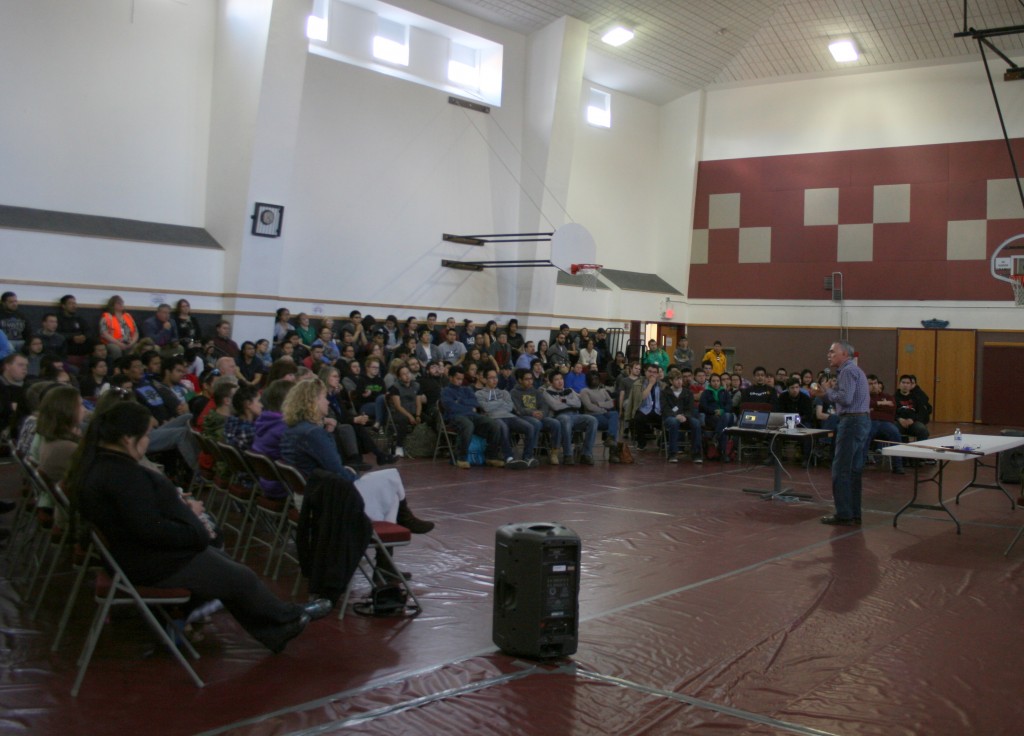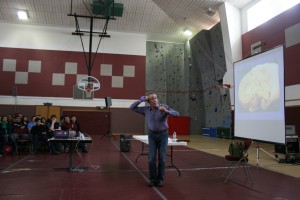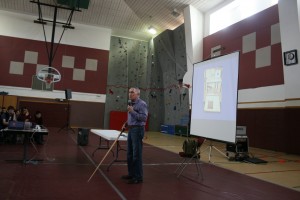Palmer, Alaska— On Wednesday, April 26, students at the Alaska Job Corps Center were absolutely captivated during a dynamic presentation by famous tobacco addiction researcher Victor DeNoble on the science of addiction and how it affects the brain.
DeNoble’s talk, which lasted about an hour, told the story of how he and his research partner unraveled the efforts of major tobacco companies to convince the American public that tobacco was not addictive. In the 1980s, he was supposed to be doing research for the tobacco companies to discover a drug that did not cause damage to the heart. Instead of focusing on this research, he conducted multiple studies on rats and monkeys that proved the seriously addictive aspects of tobacco and how addiction completely rewires the brain.
When the tobacco companies learned of his discoveries regarding tobacco’s extreme effects on the brain, he was fired and kept silent because of the theft of his research evidence and a secrecy agreement he had signed when he was originally hired. After a decade of being silenced, and even having to be placed in protective custody for a time, DeNoble became the first whistle-blower to testify before Congress, which resulted in a major change in American policies regarding tobacco and billions of dollars in fines for the tobacco companies.
His talk was especially relevant for the Alaska Job Corps students because they are in an age group that is particularly susceptible to drug addiction. During the presentation, DeNoble toured the room with a monkey brain and even a human brain to show to every student. The students surrounded him and took photos with their phones as he walked around the room. After his talk, a crowd of students lingered to speak directly to DeNoble about the consequences of addiction.
“This presentation really intrigued me,” said Tevin George, a carpentry student at Alaska Job Corps. “It really encouraged me to avoid using any drugs because I saw how it can change your brain.”
Travis Chunak, Alaska Job Corps’ president of the Student Government Association, also says the talk affected his outlook on tobacco.
“I learned how the tobacco companies did not want to change things to help people,” said Chunak. “It changed my views on cigarettes and I think about that when I think about using tobacco.”
DeNoble showed slides explaining the changes to the brain because of addiction. He also showed how e-cigarettes and hookahs can be even more damaging than regular cigarettes. He also said that the average age that people begin smoking is at 11 years old.
“This presentation was absolutely an eye-opener for anyone tempted to use tobacco,” said Malyn Smith, Alaska Job Corps Center Director. “Here at Alaska Job Corps, we offer extensive support for students who may be addicted to tobacco through our dedicated substance abuse counselor and addiction support groups.”
Martha Steiner, the Alaska Job Corps substance abuse counselor, says that the center offers many sources of support to help students quit using tobacco and other drugs.
The center offers nicotine replacement therapy and a quitting program that offers a full range of education and support services.
“The safety and health of our students is our number one priority, and educating them through speakers like Dr. DeNoble is essential to spreading awareness and helping prevent, and end, the use of tobacco on our center,” Smith added.
The Alaska Job Corps Center would like to offer special thanks to the Mat-Su Borough School District for bringing DeNoble to Alaska Job Corps for the presentation.
The Alaska Job Corps Center is a federally funded career training program administered by the U.S. Department of Labor and managed by Chugach Educational Services, Inc. The Center is committed to providing the highest quality programs for young adults by offering instructions in academics, trades and life skills through innovative methods that respond to the unique individual and group needs of today’s youth.
Story by Carin Meyer, Business Community Liaison, Alaska Job Corps Center
Photos by Carin Meyer
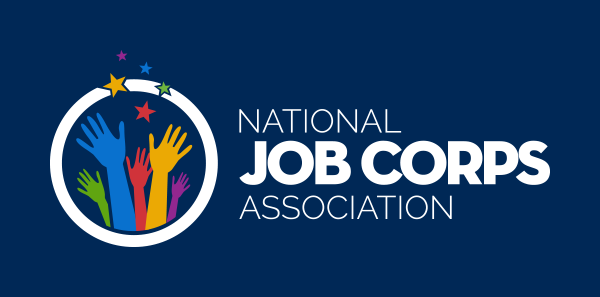
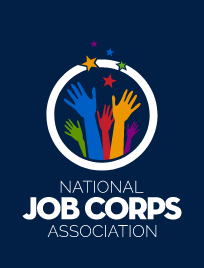
 JOB CORPS
JOB CORPS 